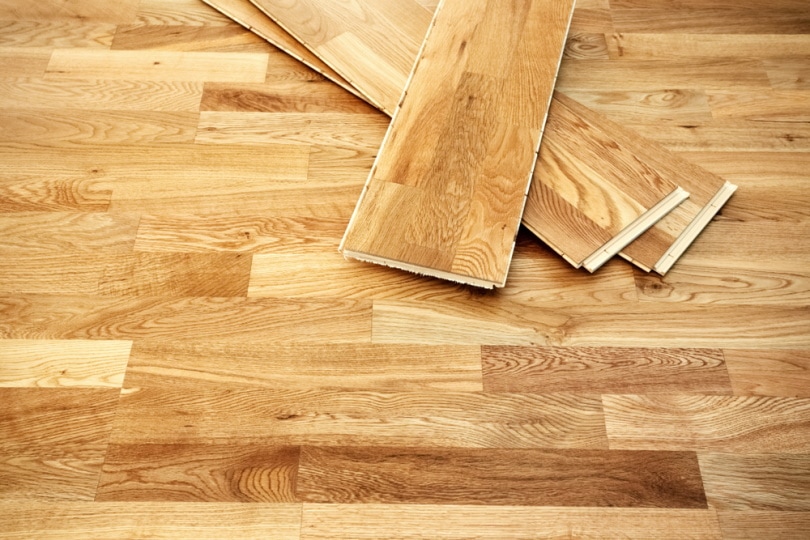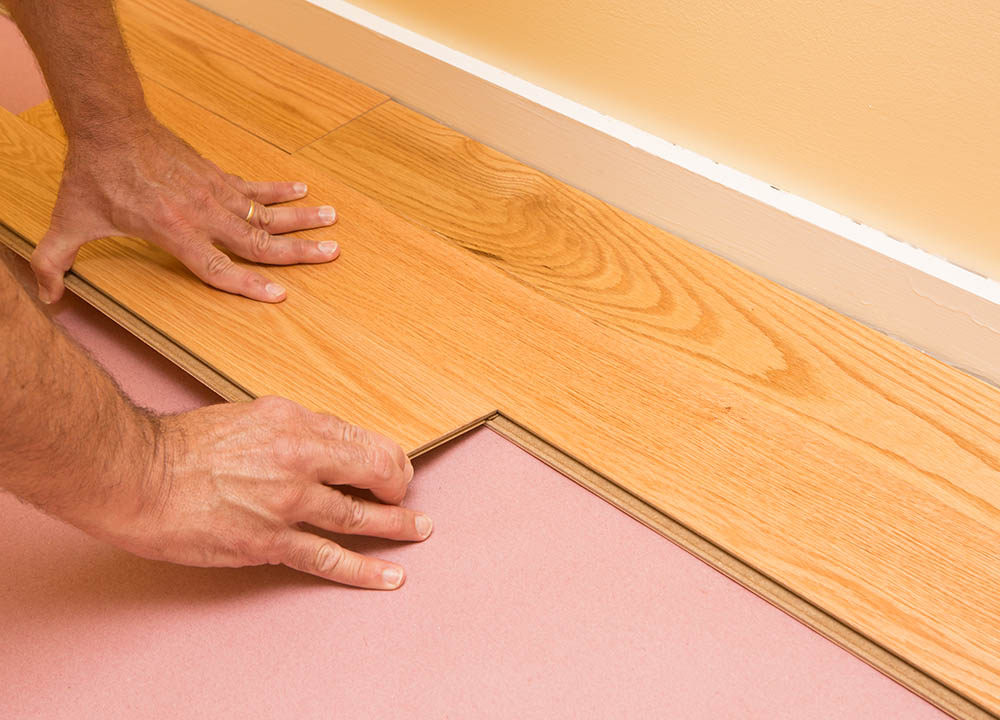Is Engineered Hardwood Waterproof? Facts & FAQ
-
- Last updated:

Engineered hardwood comes with a waterproof surface sealer that is tough and resistant to water. However, the surface veneer and base layers of the engineered wood can swell and warp if they get wet. What this means is that it’s important to clean up the water as soon as you notice it’s sitting on the hardwood even though it comes with a water-resistant cover.
To put it more simply, engineered hardwood isn’t going to get damaged if you drop some water. Still, it’s important to pick up water as soon as you notice it to prevent any long-term damage. If you want something that’s more waterproof, you will want to look at tile.
Scroll down to learn more about the waterproof rating of engineered hardwood, including how to care for this flooring type best.

Is Engineered Hardwood Waterproof?
Engineered hardwood is very durable. It is designed to be tough. In fact, engineered wood comes with a waterproof surface sealer. This sealer helps the flooring to resist spills, humidity, and other moisture.
Even though engineered hardwood comes with a waterproof surface sealer, it isn’t entirely waterproof. The surface veneer and base layers are wood, which is able to swell and then warp if left wet for too long. What this means is that the waterproof surface sealer helps to protect the wood, but it is not impenetrable.
So, engineered hardwood is able to withstand some water, but you shouldn’t let water sit on the engineered hardwood for too long. When you do this, you risk damaging the wood underneath the sealer. For best results, try to pick up water as soon as you notice it on the ground.

How Long Does Engineered Hardwood Keep Water?
Engineered hardwood is able to compete against water pretty well. In fact, it is more water-resistant than standard hardwood flooring, but it isn’t as water-resistant as tile. What this means is that you don’t need to fret if you drop some water on the ground or if the dishwasher ran over. The sealer will be able to fight the water for some time before you need to panic.
Even so, try to pick up messes when they happen. When you do this, the sealer will last longer so that you don’t have to worry about your floor needing to be replaced prematurely.
What Is the Most Water-Resistant Floor?
Engineered hardwood is considered a pretty good flooring type if you are worried about moisture. Because of the extra sealing, it will withstand everyday spills and humidity pretty well. Even so, some flooring types are better suited for moisture than engineered hardwood.
Ceramic and porcelain tile, for example, are the best for waterproofing purposes. They are basically impenetrable and do not allow liquids to seep into the floor. At the same time, tile is easy to maintain and very durable. The main downside is that tile is expensive and heavy. If you need the most water-resistant floor, tile is the way to go, though.

How to Care for Engineered Hardwood?
If you decide that engineered hardwood is right for you, it’s important to care for it properly. The better you care for the engineered hardwood, the longer it will last.
Always make sure to pick up any debris and excess water. Anytime you drop food or liquids on the ground, pick it up immediately. This just helps to keep the floor clean and free from stains or water damage.
You also need to routinely clean the floor using a mop. You don’t need to soak these floors. Instead, use mops that only require a little bit of water to go a long way. Additionally, select a floor cleaner that is safe for engineered hardwood floors. Allow the floor to air dry the floor using the room.

Conclusion
Engineered hardwood is not waterproof per se, but it is very durable and resistant to water. It is more resistant to water than traditional hardwood, but it isn’t as waterproof as tile. What this means is that engineered hardwood isn’t going to be damaged from one spill, but it’s still important to pick up excess moisture whenever you notice it.
If you need something that’s more waterproof than engineered hardwood floors, select tile. Although tile may be expensive, it is the most waterproof option. Engineered hardwood, in contrast, is more affordable and lighter, but it isn’t quite as waterproof, though it still offers quite a bit of water resistance.
Featured Image Credit: Ingo Bartussek, Shutterstock
Contents

